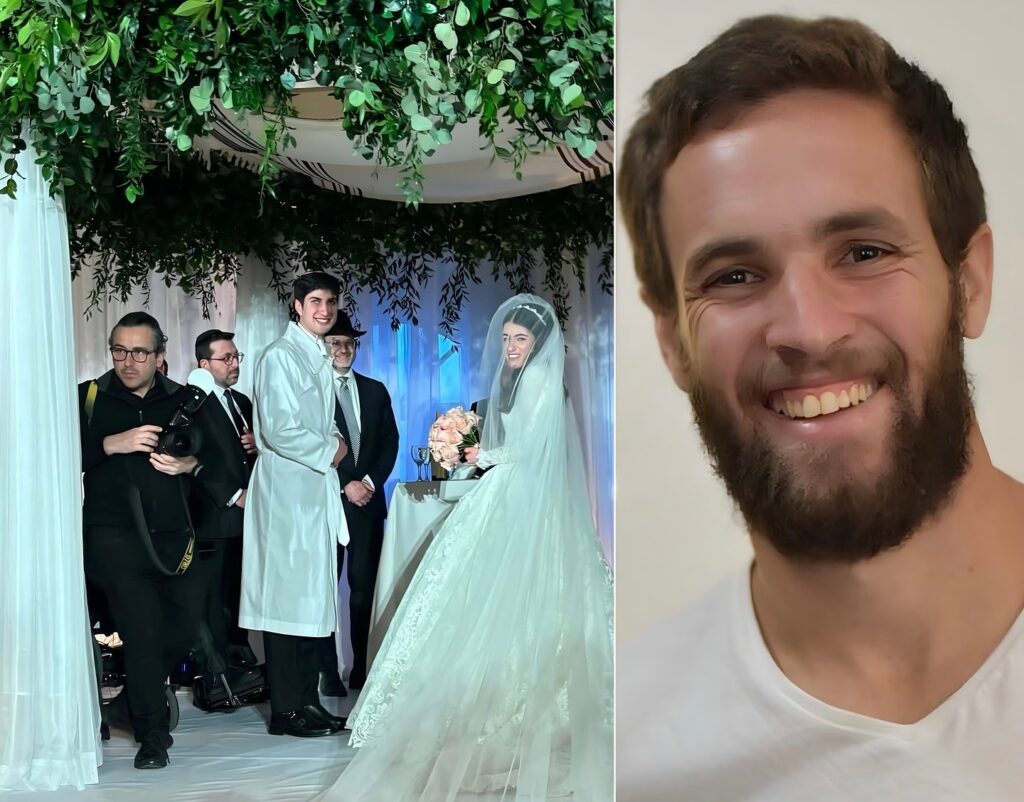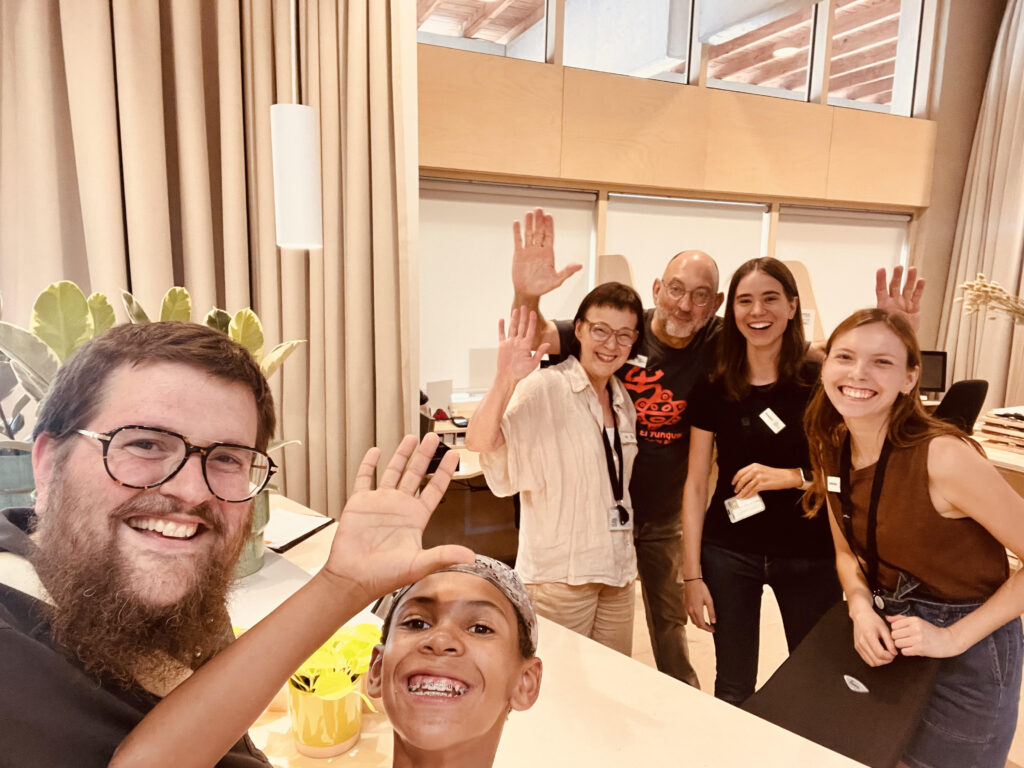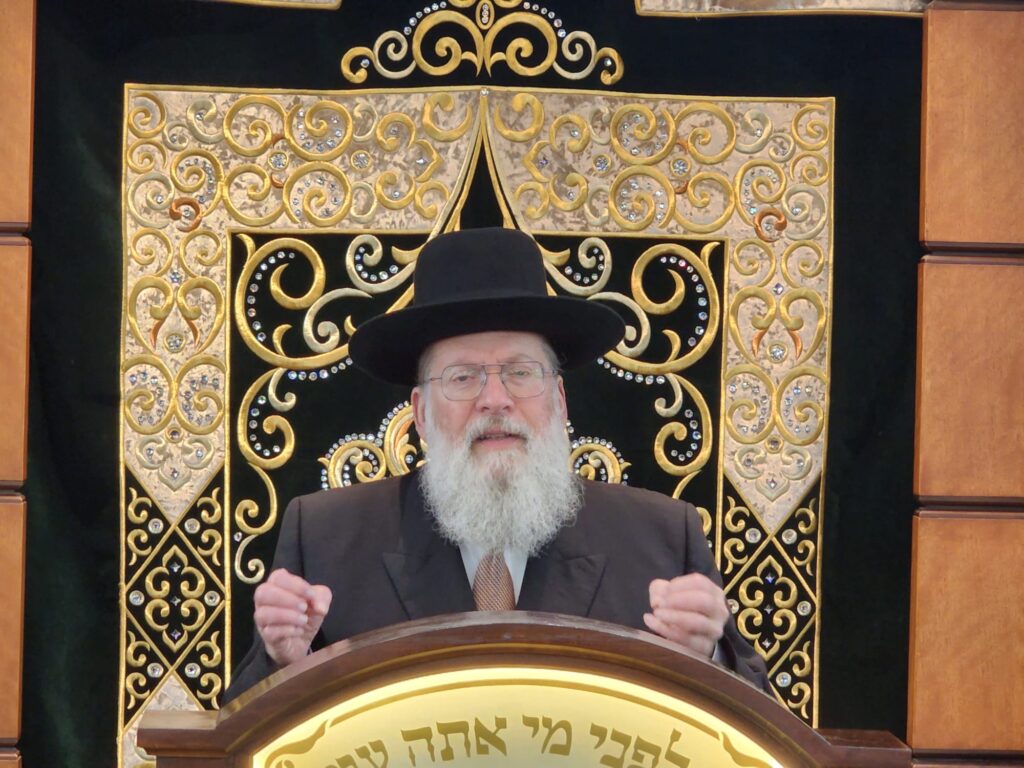Musings Of A Shliach From Montana
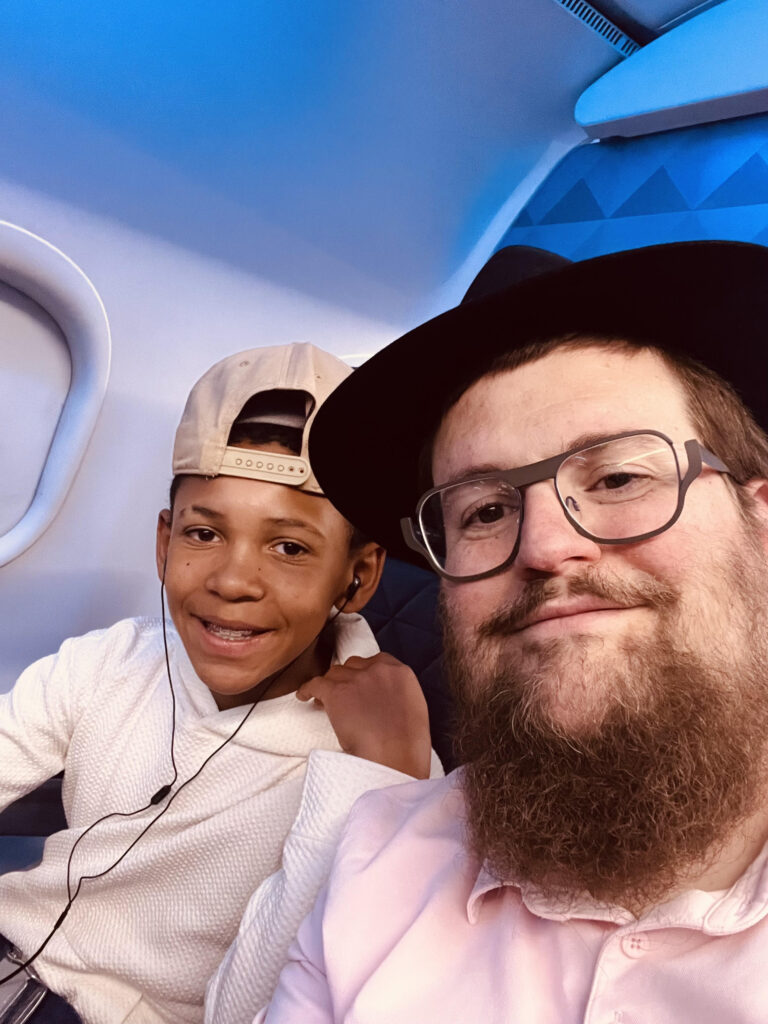
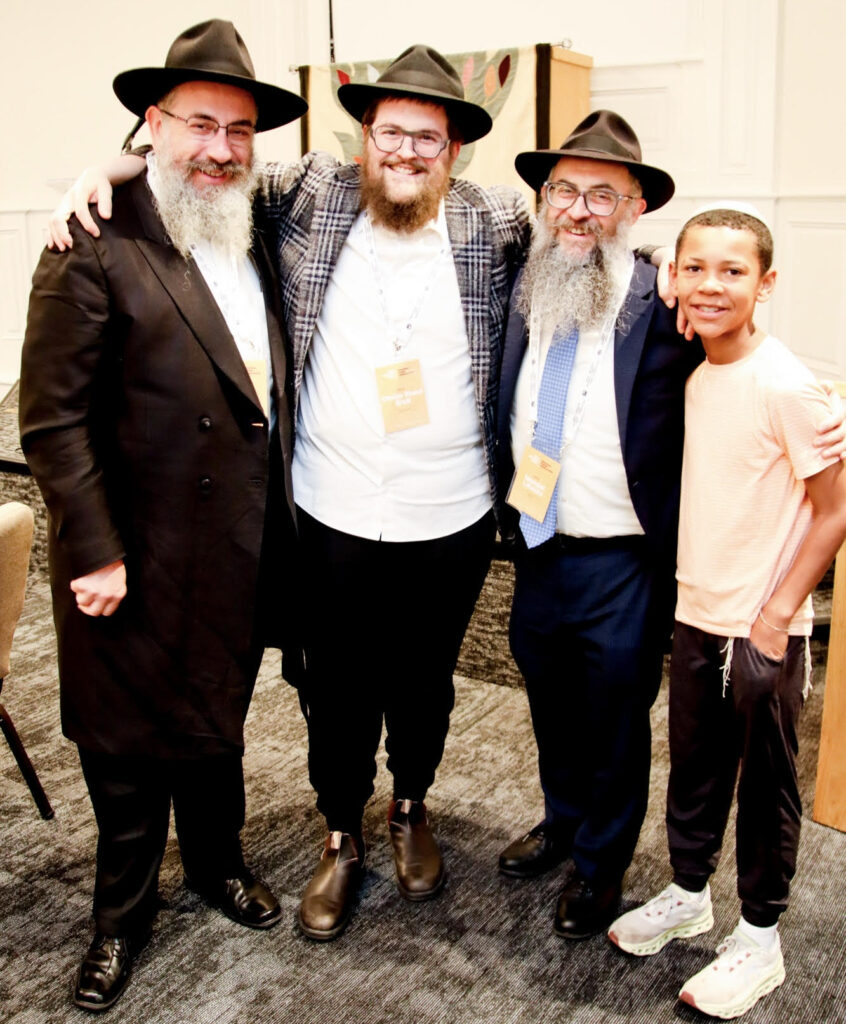
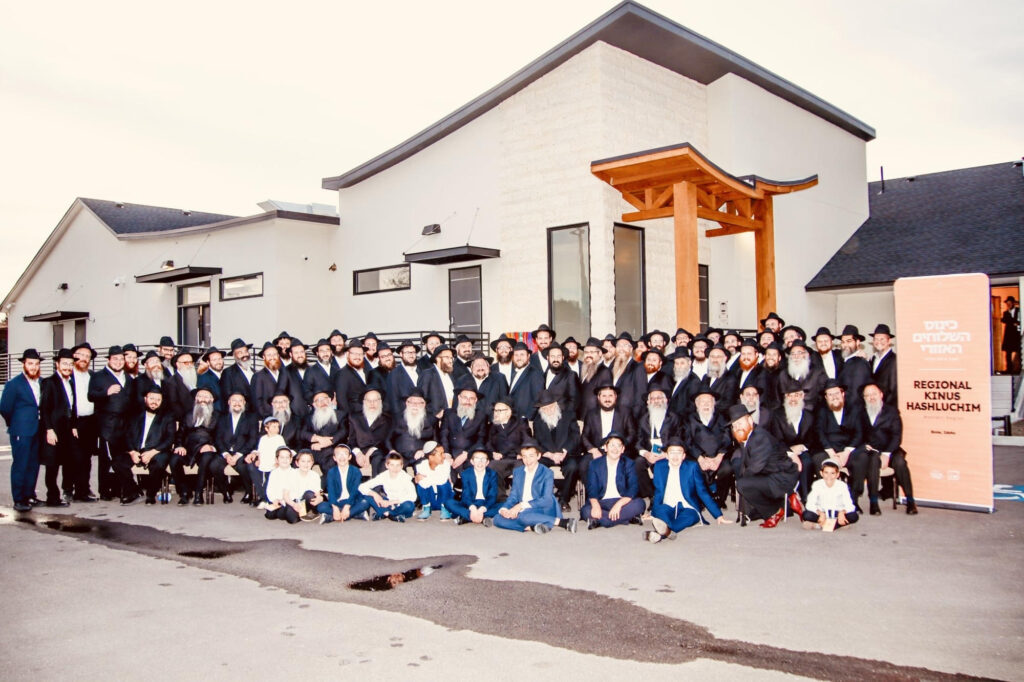
It’s rare that I leave Bozeman for a Shabbos, perhaps 3-4 times each year, including this past Shabbos. On Friday morning, Menny and I flew to the Potato State of Idaho to participate in a regional Chabad Shluchimconference hosted by my beloved colleagues and friends, Rabbi Mendel and Esther Lifshitz in Boise.
While the Kinus is for the “Western Region,” it’s not a geographical homerun. “Western” in Chabad lexicon doesn’t include California or Nevada, but does include Missouri, Tennessee, and Nebraska. Let me explain. Back in the 80s, there were states that didn’t have large contingencies of shluchim, and when it came to organizing regional conferences, those states were lumped together. It was like the “ingathering of exiles” of rabbis who lived in remote areas.
Back then you had two or three shluchim in Arizona, four in Washington, one in Missouri, one in Oklahoma, one in Tennessee, one in Oregon, one in Hawaii, one in Nebraska, and a few in Minnesota. Today, there are probably two hundred couples serving these “random” states of Alaska, Arizona, Arkansas, Colorado, Hawaii, Idaho, Iowa, Kansas, Minnesota, Mississippi, Missouri, Montana, Nebraska, New Mexico, North Dakota, Oklahoma, Oregon, South Dakota, Tennessee, Utah, Washington, and Wyoming.
I spent many years beseeching Rabbi Moshe Kotlarsky, of blessed memory, to reorganize these states to be geographically compatible, but he wouldn’t hear of it. I explained to him that it makes no sense for a rabbi in Anchorage to attend a “regional” conference in St. Louis, but he stuck to his belief and insisted that this is how it’s meant to be. While I was left with unanswered prayers and generally don’t attend these gatherings due to distance, when it’s a neighbor in Boise, we make it happen.
Shabbos was spectacular and took place at the Chabad Center in Boise that was inaugurated right after October 7th, which I had the honor of attending. The food was great, the fellowship super special, and despite living in Bozeman for 18 years and having our own set of challenges, I was blown away by the mesiras nefeshof my colleagues who live in tough places but are on fire to serve Klal Yisrael and bring the Rebbe’s limitless love for each Jew to the most distant shores.
I heard Rabbi Yeshaya Rotenberg of Hilo on the Big Island of Hawaii talk about bringing matzah and wine to a Jew who was working overtime to run away from his traditional Jewish upbringing. I heard Rabbi Yonah Grossman of Fargo, North Dakota talk about his final push to finish the first mikvah in his state. I listened to Rabbi Shimey Wilhelm of Lake Oswego, Oregon talk about his dedication to delivering challah each week to Jews in his area and so many boxes of matzah before Pesach. I heard Rabbi Moshe Nigri, who serves the Jewish students at the University of Utah in Salt Lake City, talk about his trek to blow shofar on Rosh Hashanah for three Jews, including one formerly antagonistic student who is now heading to yeshiva. I heard Rabbi Chaim Landa from St. Charles County in Missouri talk about saving a Jewish person’s body from being used for scientific research, and how that prompted him to create a Jewish cemetery in his area. I heard from Rabbi Muleh Itkin about the new Kosher Deli that he operates at Chabad of Sante Fe, New Mexico which is attracting so many Jews. I heard from Rabbi Mendel Wolowik (son of Rabbi Zalman and Rebbetzin Chanie Wolowik of the Five Towns Chabad), who recently opened a Chabad Center in San Tan Valley, Southeast of Phoenix Arizona, and his only request of us senior shluchim is that we make more opportunities available for his friends who are still in Brooklyn and are yearning to open their very own Chabad centers to serve Klal Yisrael.
All weekend long I was inundated with heartfelt anecdotes, stories, and inspiration, and so many thoughtful ideas. I also heard about the hardships, the vulnerabilities, and the challenges.
The five-hour drives to the mikvah. The sentiment of anti-Israel Jews who are scared to interact with Chabad because we are too pro-Israel. The issue of raising funds to keep things afloat in smaller communities. The burden of running a Chabad house 24/7 and how that can affect the household and the shalom bayis. The importance of keeping up on our own spirituality and avodas Hashem when serving others all the time. Raising our kids in places with no formal chinuch. Dealing with New Age ideologies that are antithetical to Torah, and so much more.
In this week’s parashah, Emor, we read about the mitzvah of Kiddush Hashem, sanctifying Hashem’s name in the world. There are people who wake up every day and, in their workplace, their subway ride, their Uber drive, their Zoom calls, they make a huge Kiddush Hashem. These are Jewish men and women who by their Torah behavior, display the proper ethics and morals of a Yid, bringing incredible honor to the Jewish people and Hashem. I am consistently amazed by the ability of a Jew to impress the world with the actions that we as Jews don’t consider novel, but rather the basics of Judaism.
I remember a story from a few years back when Rabbi Noach Muroff, who needed a piece of furniture for his home office, was searching on Craigslist and found a desk that worked for him. He was having a hard time getting the desk, which had a protrusion at the top, through the door of his home, so he unscrewed the top of the desk. That’s when he discovered a bag behind the file drawers that contained $98,000 in cash. It was almost midnight, but Noach and his wife called the previous owner and told her about the money and later returned the $98,000. Noach and his wife took their four children for the drive to return the money. He remarked, “Both my wife and I were raised as Orthodox Jews and this is what we were taught from a young age. To do what is right.”
The story hit the news because the world doesn’t expect it. They certainly don’t expect it from a nation that they continuously vilify in the unkindest ways. Every few months I read about another story of city councils on the East Coast that are trying to keep the Jews out by making it impossible for a large Jewish family to live in their town. One day it’s Toms River, then it’s Monticello, and now it’s Linden, New Jersey. Yet, amid these moments of hurt and frustration, they too are made aware of the true character of Klal Yisrael, and it blows their mind, whether they admit it or not. When sitting with my colleagues over Shabbos it hit me that for most Jews, the Kiddush Hashem happens through their behavior, yet there is no mobilization each morning to try and find ways to bring honor to Hashem in public. Shluchim, on the other hand, entrusted by the Rebbe, zt’l to be ambassadors of Hashem in this world, spend the entirety of our lives devoted to ensuring that Hashem’s name becomes beloved in the world and we actively seek ways to bring that message to the masses. Just this week, I wrote an op-ed about Pesach Sheini and second chances in our local paper, the Bozeman Daily Chronicle, to bring the beauty of Hashem’s wisdom to the world around me.
When Rabbi Kessler and his Rebbetzin wake up each morning in Sedona, same with Goldschmidts on Bainbridge Island, the Shkedis in Billings, the Alperowitzes in Sioux Falls, the Cohens in St. George, the Tiechtels at KU in Lawrence, or the Feldmans in Bend, they are not just waiting for a Kiddush Hashemopportunity to land in their lap, they are seeking new and innovative ways to bring more and more of Hashem’s presence into the world.
During Shabbos, we also heard from Rabbi Mendy Kotlarsky, Reb Moshe’s son, who directs many of the Chabad Headquarters’ divisions, including C-Teens, C-Kids, and oversees these regional conferences. He spoke about his recent visit to Montenegro and how so many Jews are being cared for, both locals and visitors, and how incredible it is to see the growth of Jewish life since October 7th as so many more Jewish hearts have opened up to their heritage and are now wanting to connect.
This past Shabbos was extremely inspiring for me personally, but I’m sharing it with you because we don’t need to be Lubavitchers or shluchim to seek opportunities for Kiddush Hashem. Imagine if each of us used our social media, our email signature, our local paper, our doctor appointments, or our flights to Florida to share the beauty and affinity for Hashem and His Torah with all those we can reach. Our world would be that much brighter, that much more educated, that much more G-dly.
Let’s get it done. n
Rabbi Chaim Bruk is co-CEO of Chabad Lubavitch of Montana and spiritual leader of The Shul of Bozeman. For comments or to partner in our holy work, e-mail [email protected] or visit JewishMontana.com/Donate.







